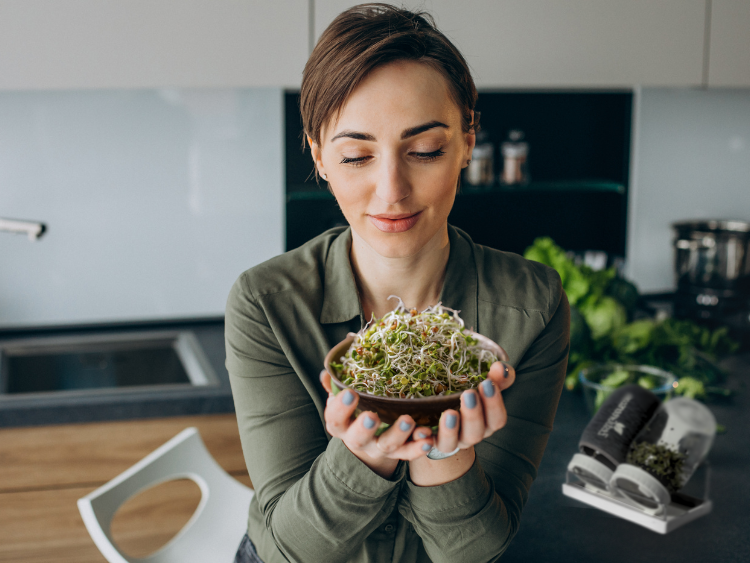Why Do My Sprouts Smell Bad? Common Mistakes & How to Fix Them?
Sprouting at home is a simple way to enjoy fresh, nutrient-rich greens, but a funky smell can quickly turn excitement into disappointment. If your sprouts smell bad, don’t worry—it’s a common issue with easy fixes. Let’s dive into the reasons behind unpleasant odors and how to keep your sprouts fresh, crisp, and delicious.
Why Do Sprouts Smell Bad?
Sprouts should have a mild, earthy scent. If yours smell sour, musty, or rotten, something has gone wrong in the process. Here are the most common mistakes:
1. Inadequate Rinsing
Sprouts need regular rinsing to wash away natural metabolic waste and prevent bacterial buildup. If you’re not rinsing at least twice a day, stagnant water and leftover debris can cause bad smells.
2. Poor Drainage
After each rinse, excess water must drain completely. Standing water creates a breeding ground for bacteria and mold, leading to foul odors. Make sure your sprouting jar or tray allows proper airflow and drainage.
3. Overcrowding Seeds
Using too many seeds in a small container reduces air circulation, trapping moisture and encouraging mold growth. Follow the recommended seed-to-container ratio to prevent compact, suffocating sprouts.
4. Unclean Sprouting Equipment
Old food residue, bacteria, and mold can linger on unwashed jars, lids, or sprouting trays. If your equipment isn’t properly sanitized before each batch, you may be introducing contaminants.
5. Storing Sprouts Improperly
Once your sprouts are ready, storing them in an airtight container can cause excess moisture buildup, leading to spoilage. Fresh sprouts need to breathe—store them in the fridge in a ventilated container lined with a paper towel.
How to Fix and Prevent Smelly Sprouts
Now that you know what’s causing the smell, here’s how to ensure your next batch stays fresh:
✅ Rinse Twice Daily: Use cool, clean water to rinse your sprouts every 8-12 hours. Swish them around to remove waste and bacteria, then drain thoroughly.
✅ Improve Drainage: After rinsing, tip your jar at an angle or use a sprouting tray with proper drainage holes. Sprouts should never sit in water.
✅ Use the Right Amount of Seeds: Avoid overcrowding by using just 1-2 tablespoons of small seeds (like alfalfa) or 3-4 tablespoons for larger seeds (like mung beans) in a quart-sized jar.
✅ Sanitize Equipment: Wash your jars, trays, and lids with hot, soapy water after each use. You can also disinfect with vinegar or hydrogen peroxide to kill any lingering bacteria.
✅ Store Sprouts Properly: Once harvested, pat sprouts dry with a paper towel and store them in a breathable container in the fridge. This helps maintain freshness and prevents excess moisture buildup.
Make Sprouting Easier with ZestiGreens
Fresh, crisp sprouts start with the right tools and high-quality seeds. At ZestiGreens, we make sprouting simple with top-tier sprouting kits designed for proper rinsing, drainage, and airflow. Our organic, non-GMO seeds ensure a successful and odor-free sprouting experience every time.
Ready to grow fresh, healthy sprouts without the hassle? Explore our sprouting kits and seed collections at ZestiGreens.com and take your home sprouting to the next level!









